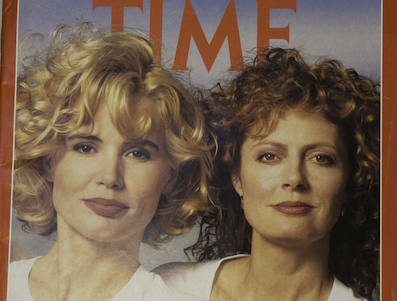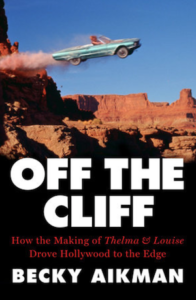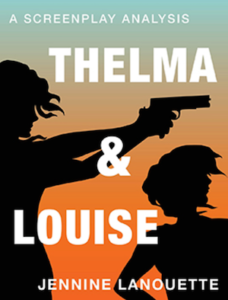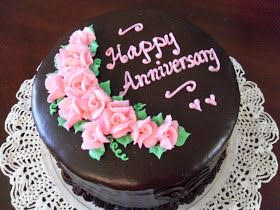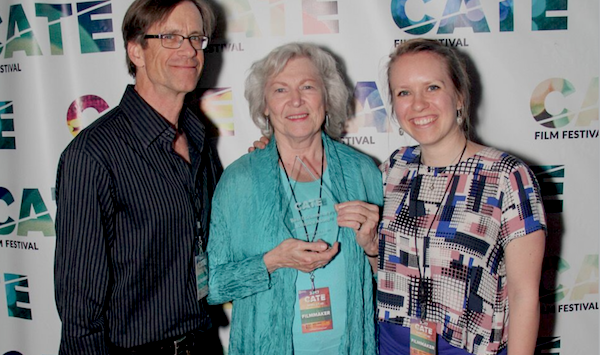Why Thelma & Louise struck a nerve
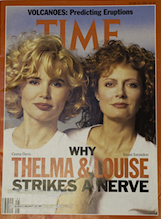
On June 24th, 1991, Thelma & Louise was emblazoned on the cover of Time magazine. The text read: ‘Why Thelma & Louise strikes a nerve.’ When this film was released it was like a cinematic bomb going off. The dust still hasn’t settled. Articles are still being written about the film, a new book has just been launched (Off the Cliff by Becky Aikman), Thelma & Louise Screenplay Analysis, an ebook, by Jennine Lanouette, came out last year, Catching Sight of Thelma & Louise, a feature-length documentary, is making the festival rounds. Classes in screenwriting, gender studies, and social justice still use it as a teaching tool. And the film is being viewed every day, the world over.
Time’s metaphor hit the nail on the head. Thelma & Louise did strike a nerve. And do you know why? It’s because women in the audience identified with the two main characters. They understood them. They felt them in their gut and in their bones. Many men in the audience were equally moved; they knew these women, too. By the time the climax came, the audience/on-screen amalgam was complete. Something new had been created. I call it ‘the Thelma & Louise experience.’ It’s one of those extraordinary things in life: you either ‘get it’ or you don’t.
Not all viewers were swept away on this fast-moving, white-water rafting trip down the river of no return. Some wanted to know ‘where is this taking us?’ ‘Nothing here looks familiar.’ ‘Is there an anchor?’ But no, you just had to keep going – just like Thelma said at the end. ‘Keep goin’… Over and out.
If you get it, it’s with you forever and if you don’t, well, nothing to be done about that. You can’t create it, do it over, change your mind or convince anyone to change theirs. Like the pre-Brad Pitt Thelma, you are doomed to wander your days wondering ‘what all the fuss is about.’
If you want to learn more about why viewers were so passionate about the film and why it made some of them so angry, it’s best to refer you to Catching Sight of Thelma & Louise. The viewers, themselves, share how the film affected them and the meanings they carry through time, into the present.
